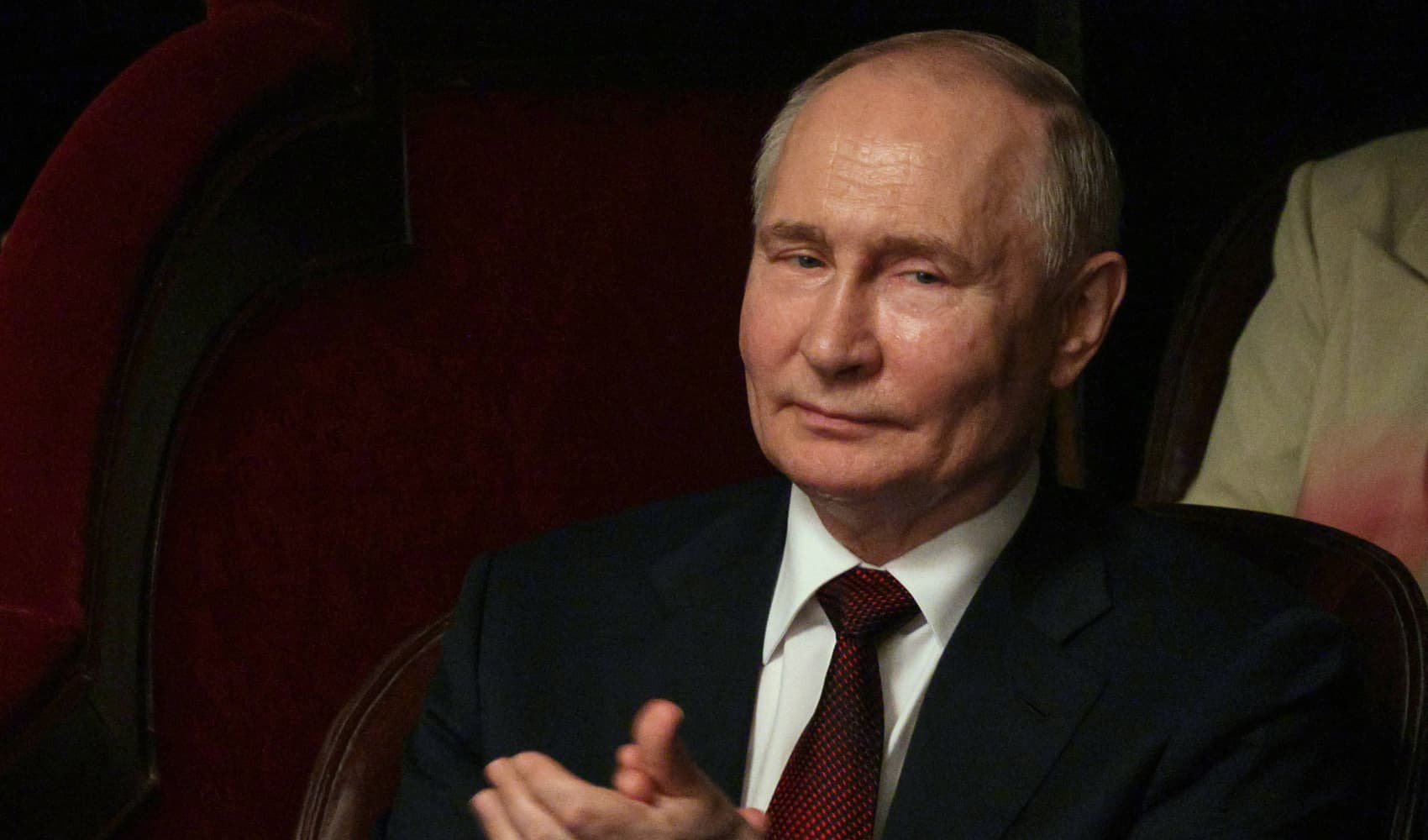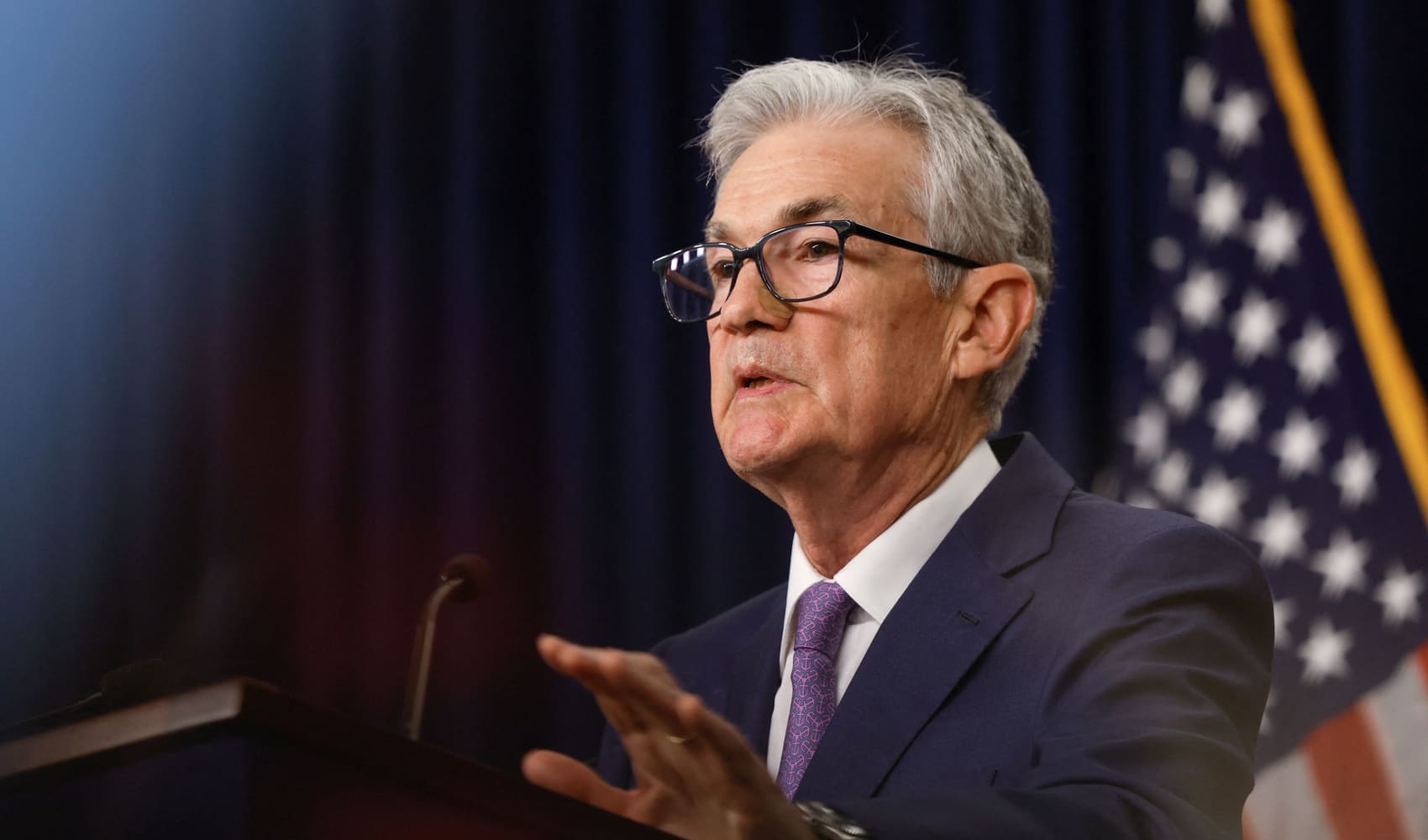
- The Biden administration has designated Wisconsin as home to one of 31 regional Tech Hubs authorized under the CHIPS and Science Act, with a focus on bio-health.
- Backers say the effort could create 30,000 jobs over 10 years, and spur $9 billion in economic development.
- A separate $3.3 billion investment by Microsoft has helped raise hopes, but the state is still picking up the pieces from Foxconn’s 2017 pledge to hire 13,000 employees for a $10 billion facility that never materialized.
Not long ago, Beloit, Wisconsin, was a largely rural community, mostly known for being the first stop in Wisconsin for travelers coming over the border from Illinois. Today, they're trying to cure cancer here.
Northstar Medical Radioisotopes, a biotech startup building a rapidly growing campus of buildings just off the interstate, is developing cancer diagnostics and treatments that use radioactive materials. CEO Frank Scholz says it is the most exciting technology out there.
Get Southern California news, weather forecasts and entertainment stories to your inbox. Sign up for NBC LA newsletters.
"This is an emerging field, very promising, to make a real difference in patients' lives and the lives of their families, because we all are affected by cancer," he said.
Northstar has been doing this work for 20 years, with occasional setbacks. Last year, the company blamed government-subsidized foreign competition for the layoffs of 93 employees — more than a quarter of its workforce — at its facilities in Beloit and Madison. But now, Scholz believes the company is on the verge of really taking off. It is not just because of the technology, which is generating interest from all around the world. It is also because Wisconsin is now home to of one of 31 Regional Technology and Innovation Hubs— or "Tech Hubs" for short — designated under the federal CHIPS and Science Act. Wisconsin's hub focuses on bio-health.
The designation allows Wisconsin to compete for up to $70 million in federal grant money. More important, it formalizes a consortium of companies, including GE Healthcare Technologies — which has a major presence in the Milwaukee suburbs — and institutions like the University of Wisconsin-Madison supporting each other and smaller companies like Northstar.
Money Report
"It will make us even more impactful for patients be able to move faster, and to scale up," Scholz said. "It's all about scaling up to be able to treat more patients earlier, faster."
Not just CHIPS Act
While most of the attention to the CHIPS and Science Act has focused on the effort to restore U.S. semiconductor capacity, the science component of the law is crucial, said U.S. Commerce Secretary Gina Raimondo.
"The 'and science' part of the bill, the tech hubs, is about staying ahead and making sure that we can produce, in the United States of America, biotechnology, quantum, EVs, AI, everything for the future," she told CNBC.
The leader of Wisconsin's effort, former GE Healthcare engineer Wendy Harris, has high hopes as a result of the Tech Hub designation. Really high hopes.
"We're projecting 30,000 jobs within 10 years, and then also $9 billion of economic development," said Harris, now regional innovation director for BioForward Wisconsin, the umbrella organization for Wisconsin's Tech Hub.
$3 billion in subsidies, broken Foxconn promises
It is not the first time that an announcement from Washington has inspired dreams of turning America's Dairyland into a tech mecca.
In 2017, then-President Trump and Wisconsin's governor at the time, Scott Walker, announced that Taiwanese electronics manufacturer Foxconn had chosen Wisconsin for a huge manufacturing and technology complex, designing and building giant video displays.
The company promised to spend $10 billion and hire 13,000 new employees for a new campus in Mount Pleasant, about 30 miles south of Milwaukee. At a groundbreaking the following year, Trump said the new facility would be "the eighth wonder of the world."
Wisconsin pledged more than $3 billion in state and local subsidies — by far the biggest such deal in the state's history — and Walker proclaimed that the region would henceforth be known as "Wisconn Valley." But it soon became clear that most of that was hype.
Within months, Foxconn began scaling back its plans, citing labor costs. As the company missed hiring target after hiring target, Walker, a Republican, lost his reelection bid in 2018 to Democrat Tony Evers. Evers' administration renegotiated the Foxconn incentive package, but not before the state and local governments spent hundreds of millions of dollars on infrastructure improvements and land acquisition, displacing more than 100 homes in the process.
Today, the company has created just 768 jobs in Wisconsin, according to the Wisconsin Economic Development Corporation. It is a far cry from the 13,000 high-paying tech jobs it promised. Instead of spending $10 billion in Wisconsin, Foxconn said it had spent about $1 billion as of the beginning of last year. The company built three buildings on the site, but they have seen limited use. So, the company is offering 44,000 square feet in one of the buildings for rent as industrial or office space. Another building, which includes a dramatic glass sphere that was supposed to be a data center, has been marketed as an event space.
"People are still really, really angry," said Mount Pleasant resident Kelly Gallaher. She became a community activist as the Foxconn saga unfolded, and now chairs the Racine County Democratic Party. "Everybody felt like they were lied to, and that is such a hard thing to come back from," she said.
Microsoft brings AI to Mount Pleasant
There are some glimmers of hope in Mount Pleasant. In May, Microsoft announced it was increasing its investment in Mount Pleasant. The company announced last year it would spend $1 billion to build a data center on land that had been set aside for Foxconn. Now, the company said it would more than triple that investment to $3.3 billion, and that the data center would focus on artificial intelligence, adding more than 2,000 permanent jobs.
Racine County Board Chairman Tom Kramer, who came into office after the Foxconn deal was signed but dealt with much of the fallout, said the Microsoft deal proves that all the spending on infrastructure was not such a bad idea after all, even though the site was built for a massive factory but will get a much smaller data center instead.
"It's kind of like the Field of Dreams. If you build it, they will come," he said. The infrastructure improvements, he said, gave Racine County the edge in winning the project. "There's 72 counties in this in this state. Seventy-one of them would like to have this in their backyard."
As for the Tech Hub designation, it won't help Mount Pleasant initially. But backers of that effort believe it will soon have a ripple effect throughout Southeast Wisconsin, including Mount Pleasant, in the same way high tech firms and research universities fueled Silicon Valley.
"It attracts workforce into the industry and attracts companies into that area," Harris said. "That's what we're attempting to do."
Gallaher bristles when people suggest that all's well that ends well in Mount Pleasant.
"We've watched our village go through a few years of desperation," she said. "One of the worst aspects is the cynicism that it has caused among people."
She said that cynicism extends to both Microsoft and the Tech Hub.
"The idea that we're going to put our faith in our future in one company, I think should make every community pause," she said.
A new kind of economic development
Raimondo, who was a two-term governor of Rhode Island and a venture capitalist before she became Commerce Secretary, said the Tech Hub program is nothing at all like the Foxconn deal. She said it is a different approach to economic development.
"This is not about giving money to any particular company. That's a big way in which this Tech Hub program is different," she said. "It's really not about picking winners and losers at all. It's about investing in underlying expertise that these communities have."
Harris, of BioForward Wisconsin, said that unlike Foxconn, all the entities involved in the Tech Hub are already well-established in the state. In fact, she said, many of them had been talking for years about working more closely together, but it took the Tech Hubs competition to finally focus those discussions.
"These are companies that are here, that are successful, and are bonding together," she said.
Political calculations in battleground state
This being an election year, and Wisconsin being the ultimate battleground state, political questions have permeated all of the economic development issues.
Raimondo said politics had nothing to do with Wisconsin's Tech Hub designation.
"I personally am not even involved in making the decisions," she said. "We have a panel of experts who just evaluate the underlying asset in the community."
But when it comes to Microsoft, President Biden made a point of coming to Wisconsin to celebrate the announcement, even though his administration had little to do with it, and to make fun of Trump's Foxconn groundbreaking 6 years ago.
"They dug a hole with those golden shovels," he said. "And they fell into it."
Trump did not mention Foxconn when he held a rally in Racine last week. But his supporters did not seem to hold the episode against him.
"I don't think Foxconn is dead," said Everett Jenks of Franksville, Wisconsin. "I think it got delayed."
For that, Jenks blamed Gov. Evers for reducing the incentives.
But in a 2021 statement following the renegotiation, Foxconn praised the Evers administration for giving it "the flexibility to pursue business opportunities in response to changing global market conditions."
In fact, even before Trump and Walker's golden shovel ceremony in 2018, Foxconn had already scaled back the plan unveiled at the White House less than a year earlier. By the time Foxconn and the Evers administration renegotiated the incentives in 2021, video display manufacturing had long since been removed from the plan.
"Original projections used during negotiations in 2017 have at this time changed due to unanticipated market fluctuations," the 2021 statement said.
Just the same, Wisconsin is continuing to pay serious incentives for its high tech aspirations. According to the Wisconsin Economic Development Corporation, Foxconn has already been approved for nearly $44 million in subsidies under the scaled back incentive deal. The company is eligible to increase that amount to $80 million if it hires 1,454 people by 2026.
The state has agreed to pay up to $7.5 million in matching funds for the Tech Hub. And Microsoft stands to collect millions of dollars in tax breaks under a sales and use tax exemption for qualified data centers that Evers signed into law last year after Microsoft's original announcement. Microsoft is expected to be the first company to take advantage of the tax break.
The software giant is paying $50 million to acquire its site in Mount Pleasant. But according to the official fact sheet about the agreement, because Foxconn had the right of first refusal on the property under its original deal, the proceeds of the sale will not go to the taxpayers. They will go to Foxconn.






